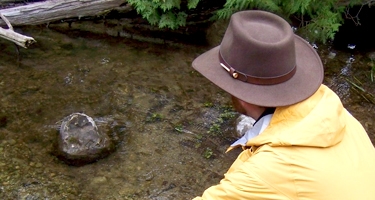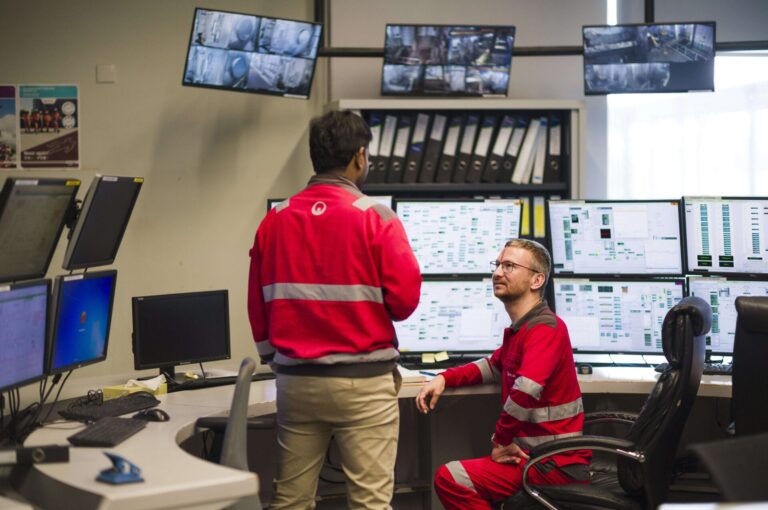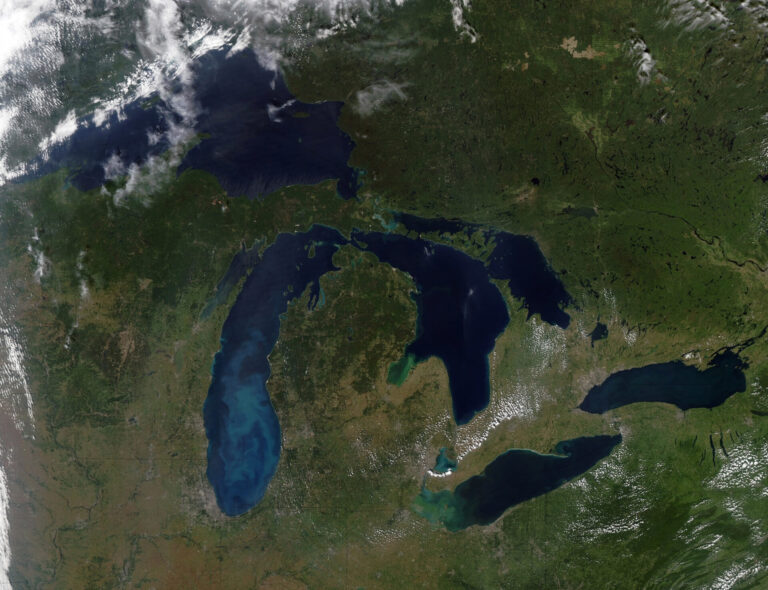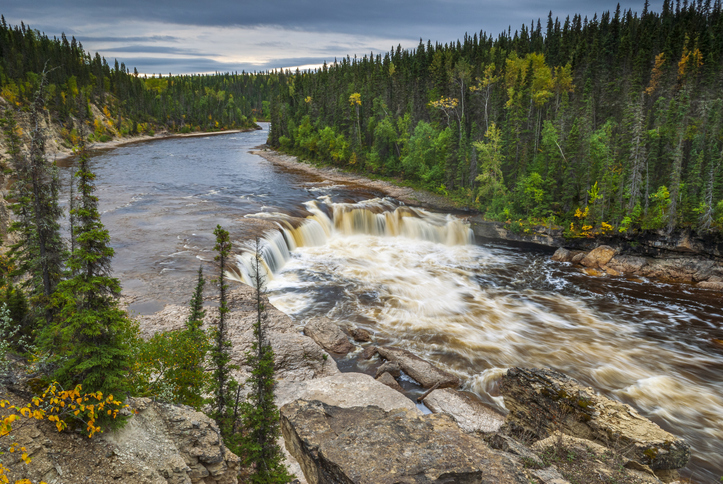Over the past two years, hundreds of boil water advisories have been issued in Ontario alone. Why aren’t we providing everyone in Canada with safe drinking water? Dr. Rob de Loë thinks it’s an issue of capacity.
Dr. de Loë will be speaking as part of Elmvale Foundation‘s World Water Day celebration on March 22. We spoke with him last week to find out what he thinks about Canada’s approach to water governance on national and local levels.
As the research chair in water policy and governance at the University of Waterloo, you’re concerned about topics such as water security, water allocation, drinking water source protection, and adaptation to climate change. You say that you’re interested in creating positive changes in water governance. What are some of the recent positive changes you’ve seen happening in Canada?
One of the most interesting things we’re seeing is that the people in the room are changing. Historically, governance was about government. All around the world, we’ve recognized that the job’s too big for government alone. There wasn’t enough expertise. There are new faces at the table: farmers, municipalities, First Nations, for example.
If you get more people involved, you get more ideas, more buy-in, and more knowledge. The flip side is the problems of capacity.
In your opinion, what do we still need to work on? What are some of the changes you’d like to see happening in the future?
When I go to talks about water, I like to annoy my colleagues in engineering by suggesting that these challenges don’t have technological solutions. “Are you saying we can have safe drinking water without water treatment?” they ask. Of course not. But what’s the reason we’re not providing everyone with safe drinking water? Why do we have over 1,700 boil water advisories in Canada right now?
The problem isn’t that we don’t know how to treat drinking water. We’ve known how to do that for years. It’s not lack of knowledge. It’s capacity. Think of small First Nations communities or rural Ontario. You’ve got tremendous social challenges, but also some practical solutions. They have a hell of a time finding a qualified hydrogeologist that wants to live in a small community, for example. How do you address that? There’s no magic bullet. It’s a life-long project for society all the time.
It’s a bit like educating children-it’s impossible to do it all at once. It takes one child at a time, one classroom at a time, one teacher at a time. These kinds of challenges, institutional and capacity, will be with us forever. So we have to start designing some systems that will better deal with our problems.
But we can’t build something and cut a ribbon. We have to take a multi-barrier approach-it’s about distribution systems, water treatment systems, protecting sources of drinking water. It’s a tricky business and a dispersed problem.
The good news is that it’s not rocket science. We have a pretty good idea of what we have to do. I don’t want to have anybody tell me it’s a function of money. Apparently, when it’s necessary, we can find $4 billion at the drop of a hat. We just have to decide that it’s important enough. If we really want to do it, we can ensure that every Canadian has safe drinking water.
Your World Water Day talk will discuss local concerns around water. What can we do as individuals and communities to improve our relationship with this non-renewable resource?
Water is a marvelous, mythical, spiritual thing, but it works for us like a dog. What can you do? There are the standard stories about conservation, et cetera, but there’s another story, too: using our power as consumers.
We can influence our relationship with water by looking at the way we spend our money. We can look at the amount of water used to produce the goods we consume, the clothes we wear, the food we eat. It’s a step up from turning off the tap while you’re brushing your teeth. We’re getting there.
What do you hope people will take away from your talk?
I want people to walk away knowing more about water and their relationship with it. I want them to have a bit of a tool kit in terms of things they can do. I want them to understand that what they do in their homes and communities to make a difference.
If enough of us are saying to our leaders that water matters, we can have change. The other way we can have change is to have a Walkerton situation, but the price is too high. You can’t scare people into doing the right thing. This is about changing attitudes, giving people positive examples. I want people to say “You know what? There’s stuff I can do to make things better.”
Dr. de Loë is also the chair of RBC Blue Water Project advisory panel, the associate editor of Canadian Water Resources Journal, and a consultant to federal and provincial government agencies. More information about his research program is available at the website of the Water Policy and Governance Group.










Coming on May 26, on the Toronto campus, the University of Toronto Centre for Environmental Studies is holding an event titled: “Investing in Water” – a short day workshop session to dive deeper into some of the key financial issues (and opportunities) facing the management and distribution of water. Email [email protected] for details and registration information.
I’m having a little trouble believing that getting more people involved in the process is going to be helpful. If the technology is there and the money is there, why exactly are we bringing in farmers and citizens? If it’s to educate them, fine, but to make them part of an already overcrowded regulatory process seems inefficient.
hello,
my name is Dr. Salam Memon, its nice to read rob’s interview and i remember a very pleasent meeting with you rob in june 09, well as far as i know rob has worked alot and he has a well established name in University of Waterloo, CIDA and all the ministries working in Canada in development sector.
best of luck for you Rob.
regards
Dr. Salam Memon
PhD – Applied Economics and Agriculture (Texas Tech University)
M.Sc – Economics and Agriculture (Oxford University)
[email protected]